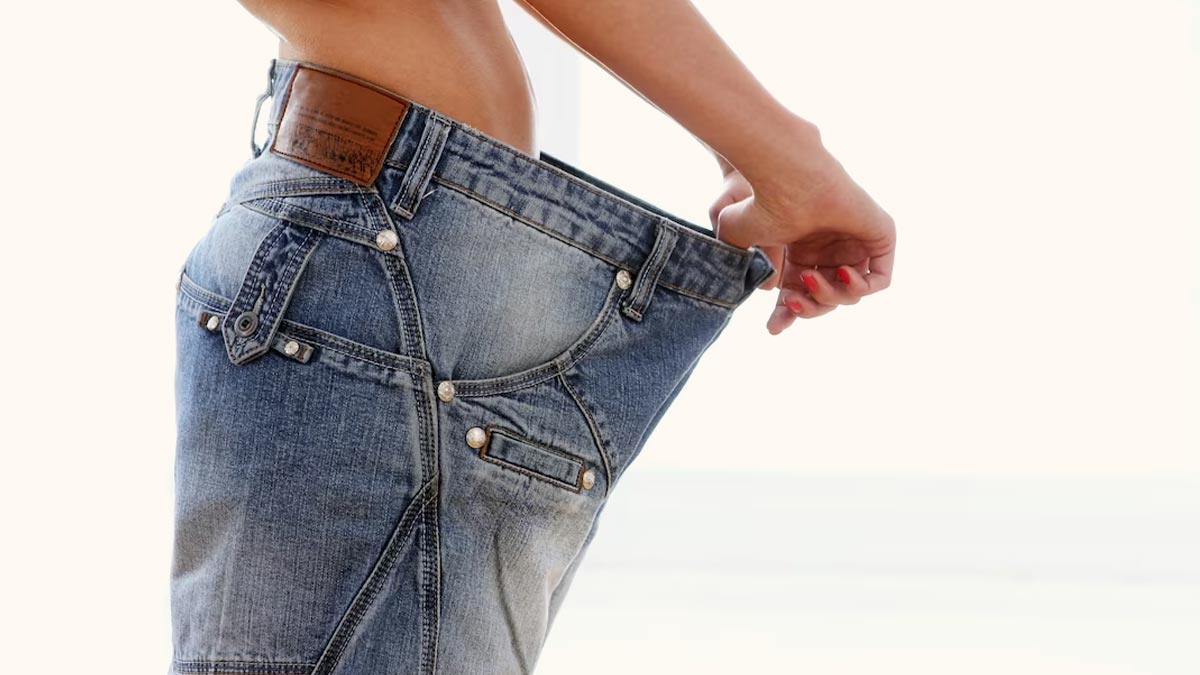
At some point or other, most of us have felt embarrassed by a bloated stomach or extra fat on our bellies. While many strategies can be tried to hide this belly fat, like wearing high waist trousers, covering it with a belt, or wearing a long and loose top, one practice that is common among all of us, is sucking in our stomachs. But did you know, that sucking in your stomach can actually lead to organ damage?
Table of Content:-
This habit is very common among women as they are routinely subjected to, and subject themselves to harsh judgement over their body’s aesthetic appeal. According to a study by the Indian Association of Preventive and Social Medicine, out of 1200 Indian college girls, 77.6% expressed dissatisfaction towards their body image. The study revealed that a higher BMI, sociocultural pressure to be thin and depression were all significantly associated with body image dissatisfaction.
Hourglass Syndrome

Our abdominal muscles work hard all day long as they are involved in almost every movement of the body. These muscles also protect our spine and most of our internal organs. But unnecessarily tensing the muscles frequently can throw your abdomen out of balance.
Also Read: When NOT To Take Your Bloating Lightly: Warning Signs
Lower abdomen stores more fat tissue. Hence, the top abdominal muscles tend to be more active. Prolonged sucking in the stomach can cause hourglass syndrome, as the top muscles are more active, and contract more vigorously, causing a visible crease in the mid-abdomen.
Hourglass syndrome develops over weeks of constant sucking in the stomach.
The Dangers of Sucking in Your Stomach

The desire for a trimmer waistline has led many people to adopt the habit of ‘sucking in’ their stomachs to achieve a slimmer appearance. This seemingly harmless aesthetic choice could potentially have the following negative consequences for your internal organs if left untreated:
- Digestive Discomfort: Continuous pressure on your stomach can disrupt digestion. This may lead to acid reflux, bloating, and discomfort after meals.
- Breathing Constraints: Constricting the abdominal area can limit the space for your diaphragm to expand during breathing. This can cause shallow breathing, reduced lung capacity, and breathing difficulties over time.
- Poor Blood Flow: Prolonged pressure on the liver and intestines can affect their function and blood circulation. Reduced blood flow can impair their ability to process nutrients and eliminate waste efficiently.
- Muscle Imbalances: Constantly engaging certain muscles while neglecting others can lead to muscle imbalances. This can affect your posture, and movement, and increase the risk of injury.
- Weak Core Muscles: Ironically, always sucking in your stomach can weaken your deep core muscles over time. These muscles play a crucial role in stabilising your spine and providing support to your internal organs.
- Strained Pelvic Floor: Sucking in the abdomen can place strain on the bladder, uterus and rectum, potentially causing urine or faecal matter to leak, as well as uterine prolapse.
Also Read: Unhealthy Bladder Can Cause UTIs: Here Is How You Can Maintain Bladder Health
Reversing The Effects Of Hourglass Syndrome
If you see a crease forming on your abdomen due to an excessive habit of sucking in the stomach, fret not as the hourglass syndrome is reversible. Regular exercises such as planks or bridges can strengthen your core muscles. Additionally, practice yoga or pilates to help your muscles to relax.
While it's natural to want to look your best, it's crucial to prioritise your internal health above all else. Sucking in your stomach may provide a temporary aesthetic benefit, but the potential harm it can cause to your organs far outweighs any cosmetic gains. Instead opt for healthy practices like exercising regularly, fixing your posture, eating balanced meals, and breathing exercises to maintain a strong and healthy body.
Also watch this video
Read Next
Bella Hadid Shares Ongoing Struggles in Her Battle Against Lyme Disease: Know About The Disease
How we keep this article up to date:
We work with experts and keep a close eye on the latest in health and wellness. Whenever there is a new research or helpful information, we update our articles with accurate and useful advice.
Current Version